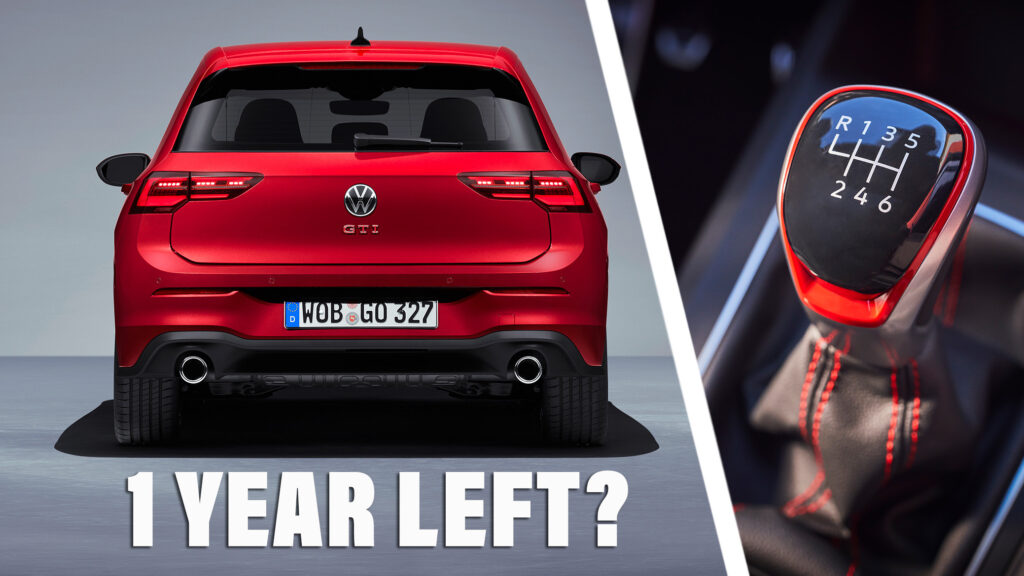For the first 29 years of its life the Golf GTI was only available with a manual transmission. But by the time the hot hatch turns 49 that might be the one thing you can’t have on the most famous hot hatch of all time.
VW is planning to drop the manual transmission option from every car in the Golf lineup, including the GTI, during 2024 when the current Mk8 car gets a mid-life refresh. That’s according to Volkswagen technical development boss Kai Grünitz, who told Autocar that the manual would be dropped to help the automaker meet tough new Euro 7 emissions legislation.
“With the next generation of the Golf, there will not be one with a manual gearshift,” he told the magazine, though the magazine reports that VW could change its mind if changes are made to the draft Euro 7 rules before the legislation is cemented into law.
Though many Golf buyers love VW’s quick-shifting dual-clutch transmission, removing the manual option could send some enthusiasts into the arms of a rival brand, not to mention make every car more expensive. While adding a DSG ’box to a U.S.-spec Golf GTi or R only increases the cost by $800, the premium is £1,520 ($1,900) on a GTI in the UK, where the Golf R is already DSG-only.
Related: VW’s $81K Golf R 333 Sold Out In 8 Minutes

The report doesn’t mention if the North American versions of the Golf, which are not beholden to Euro emissions regulations, would also lose their manual options, but that seems likely, purely from a production standpoint. The GTI and R are the only Golfs offered in the U.S., and shifted just 8,423 units between them in 2022. A good chunk of those buyers must have picked the DSG so we can’t see Volkswagen going to the effort of keeping the manual alive for such a tiny audience.
While the difference in CO2 emissions between manual and dual-clutch Golfs can be as little as 2 g/km, that can still have a big effect on fleet average emissions when you’re talking hundreds of thousands of Golfs.
Euro 7 regulations are due to come into force in mid 2025 but multiple automakers have been pushing back against the proposals, which they say are unnecessary and will result in buyers paying more for their cars.








